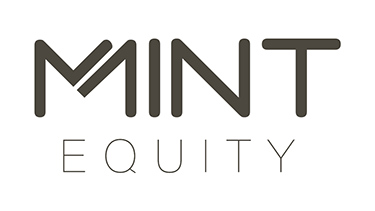The Reserve Bank of Australia (RBA) is set to meet in April to review the current cash rate. Many economists and analysts are speculating whether the RBA could potentially pause the cash rate and what this could mean for the Australian property market. In this article, we will explore the potential impacts of the RBA’s decision on the property market and why a pause in the cash rate could signify a property market boom.
Firstly, it’s important to understand the current state of the property market in Australia. Over the past year, the property market has experienced a surge in demand, particularly in regional areas. This has been largely attributed to low interest rates, government incentives, and a shift towards remote work due to the COVID-19 pandemic.
Since the RBA started raising interest rates over the last 10 consecutive months, there has been a gradual slowdown in buyers in the market due to rising mortgage rates.
In the last few weeks, economists have started predicting there will be a pause on cash rate increases. The mere whiff of interest rates pausing or decreasing has had a very immediate effect.
Auction volumes and clearance rates up
The weekend of 18 March 2023 saw auction volumes across the combined capital cities increased 74.5% to 2,234 this week making it the second busiest auction week so far this year.
Not only have auction volumes increased, the clearance rate has also increased across Sydney and Melbourne.
In Sydney, the weekend of 18 March 2023 had a clearance rate of 73.5% whereas the same time last year was only 64.8%.
In Melbourne, the weekend of 18 March 2023 had a clearance rate of 68.7% whereas the same time last year was 65.9%
Why an April pause could cause a surge in demand for property
Given the current state of the property market, it’s understandable why the RBA may be hesitant to further reduce the cash rate. Lowering the cash rate could potentially increase demand for housing even further, resulting in a further increase in property prices. However, a pause in the cash rate could also have significant implications for the property market.
One potential impact of a pause in the cash rate is increased consumer confidence. A pause in the cash rate would signal to consumers that the RBA is confident in the current state of the economy, which could lead to increased consumer spending and borrowing. This could result in a surge in demand for housing, particularly in metropolitan areas, where demand has not been as strong as in regional areas.
Another potential impact of a pause in the cash rate is increased competition among lenders. With many borrowers coming off fixed rates, the mortgage market is already starting to heat up with cash back offers of up to $4,000 for refinances. Lenders will become more competitive with their interest rates in order to attract borrowers. This could result in even lower interest rates for home buyers, making it easier for them to enter the property market and therefore, increasing demand on the property market.
Westpac economists predicting a cash rate pause
Bill Evans, Chief Economist for Westpac Group has released a statement on 17 March 2023 updating Westpac’s interest rate forecast. Westpac has lowered their terminal rate (expected peak) from 4.10% down to 3.85% indicating there is only one more cash rate increase to come before interest rates start to decline.
Evans is predicting a pause in the April cash rate announcement by the RBA and then potentially one final cash rate increase in May. The RBA Governor, Dr Lowe, gave a speech on 8 March noting that a pause in April would be considered in the light of the data that would be received before the next meeting in April. The data that has started to come in is showing a decline in business confidence (NAB Business Survey), inflation data was likely to continue to fall and with the banking crisis in the USA and Switzerland playing out in the last week; all indicators that increasing the cash rate would be not only poor fiscal management but irresponsible.
In conclusion, a pause in the cash rate by the RBA could potentially signal a property market boom in areas where property sales have stagnated. Increased consumer confidence, increased competition among lenders, and an increase in construction activity could all contribute to a surge in demand for housing – all these things could be triggered by a pause in interest rates. Ultimately, it will be important to monitor the RBA’s decision in April and the overall state of the economy to fully understand the potential impacts on the property market.

